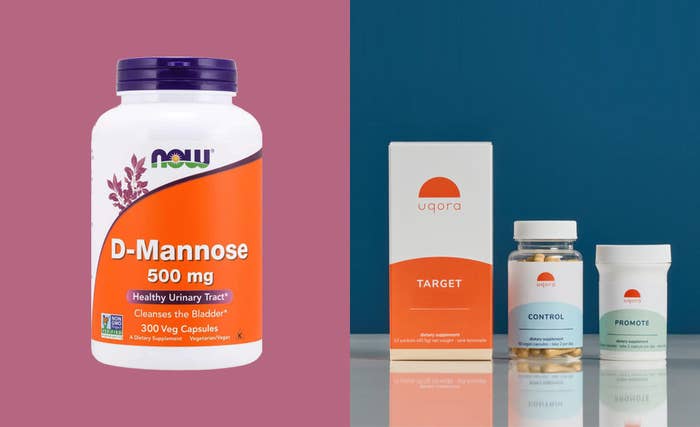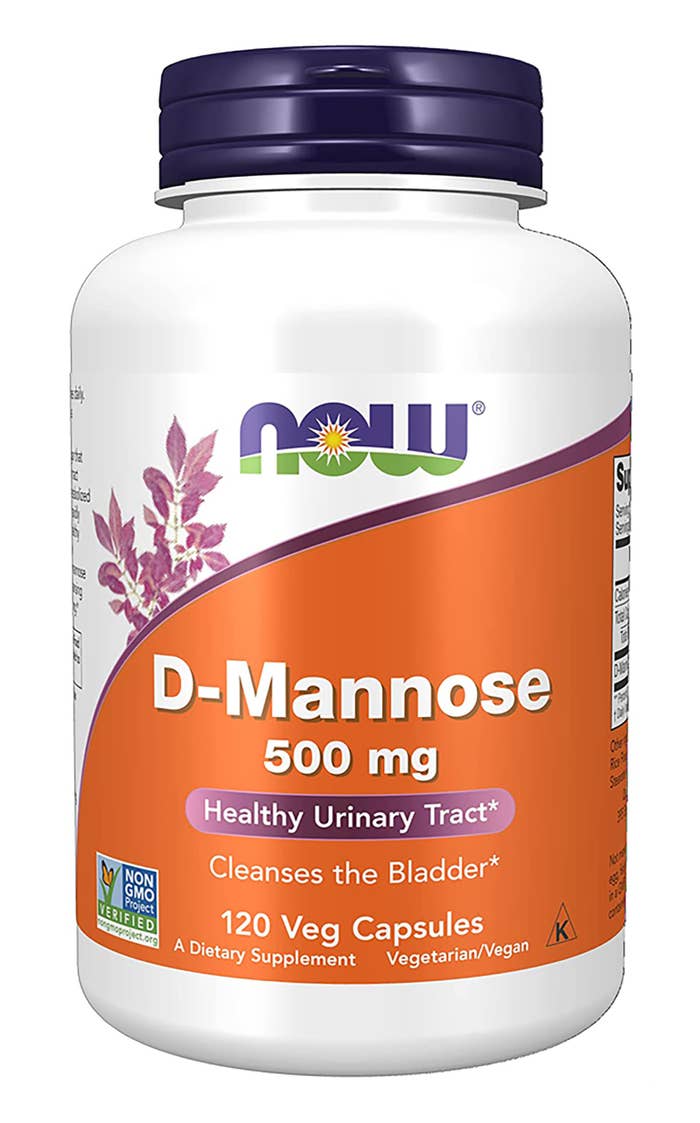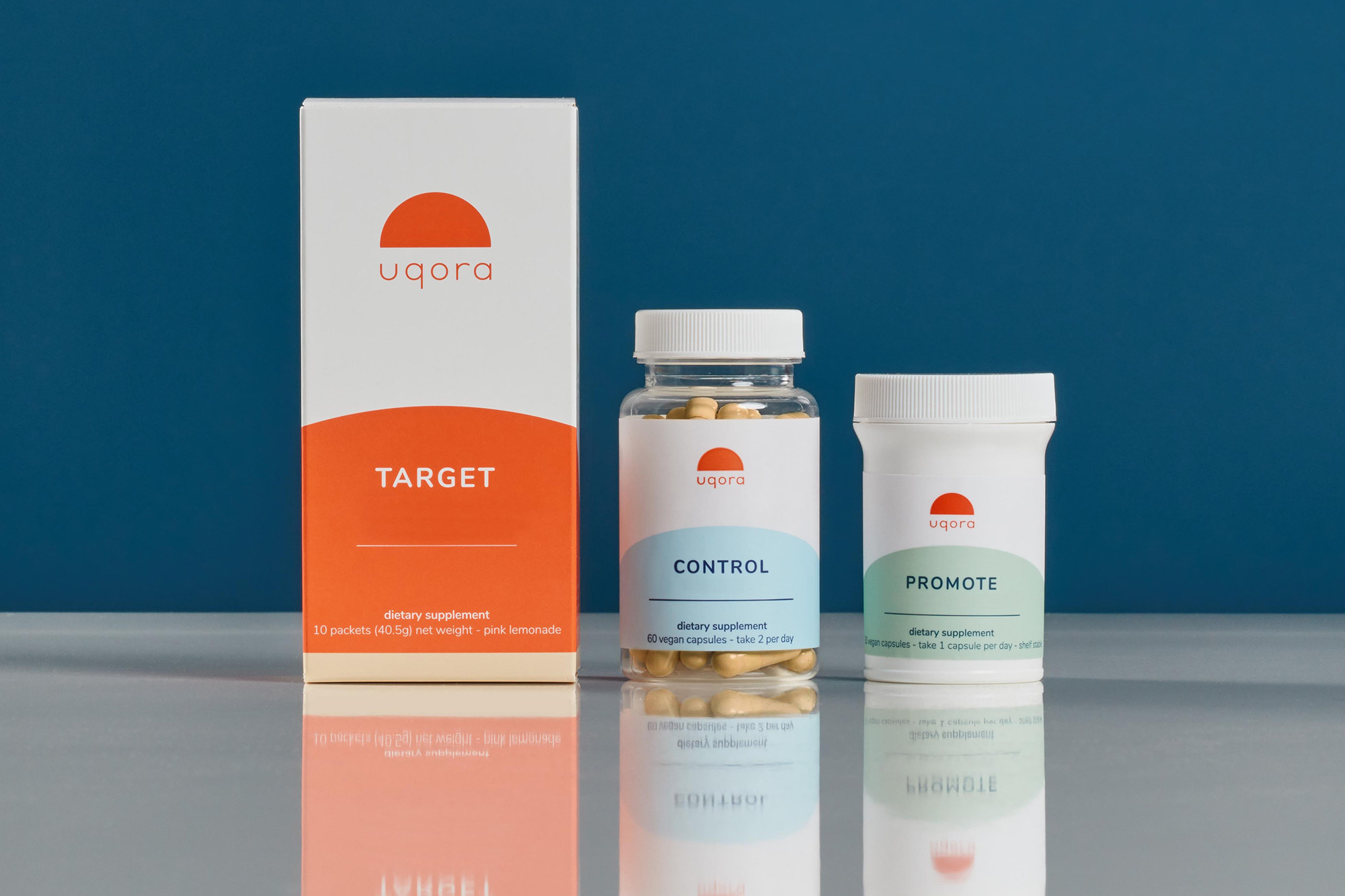
We hope you love the products we recommend! All of them were independently selected by our editors. Just so you know, BuzzFeed may collect a share of sales or other compensation from the links on this page if you decide to shop from them. Oh, and FYI — prices are accurate and items in stock as of time of publication.
In my experience, once you get to a certain age, you know whether you’re a UTI or a yeast infection person (if you’re neither, consider yourself blessed and kindly keep it to yourself).
Personally I’m a UTI girl, and I’m far from alone. UTIs are the most common outpatient infection in adult women, with about 50% to 60% getting at least one UTI in their life. Most uncomplicated UTIs (those without relevant abnormalities in the urinary tract or a risk of developing serious complications) occur in people between the ages of 18 and 39, although UTIs in general get more common with age.
To make matters worse, after you’ve had one UTI, there’s a 27% chance of getting another within the next six months, and 2.7% of women will also have a third in that same timeframe.
What is a UTI and how do you get one?
A urinary tract infection, commonly known as a UTI, is exactly what it sounds like: an infection in any part of the urinary system, which includes your kidneys, bladder, ureters, and urethra. Symptoms may include a persistent urge to urinate yet only passing small amounts of urine, a burning sensation when urinating, pelvic pain, or urine that appears to be cloudy or red.
A variety of things can affect the healthy bacteria in the bladder that normally keep UTI-causing germs at bay, including sex, menstruation, antibiotic use, or other illnesses, according to Dr. Linda Brubaker, a board-certified urogynecologist and professor at the University of California, San Diego, who specializes in treating adults with recurrent urinary tract infections.
That balance can be altered through intercourse with any partner or only certain partners, Brubaker said. Differences in baseline communities of healthy bacteria are a major reason that some are more prone to UTIs than others, while external hygienic factors like wiping the wrong way are less likely to be a cause, especially in young healthy people.
“Anatomy has a lot to do with it,” said Dr. Avisheh Forouzesh, an infectious disease specialist with her own practice in Hoboken, New Jersey. “If you have a really short urethra, things of that nature. Many different factors go into it.”
Unfortunately, that means much of what is causing recurrent UTIs may be out of your control.
Brubaker also emphasized that seeing bacteria in a urine culture does not always indicate an infection. “You can get a test that comes back and says there's bacteria here, but that doesn't necessarily mean you have an infection, and it definitely doesn't mean you need to take antibiotics.”
How to prevent and treat UTIs
If it turns out that you do in fact have an infection, Brubaker said, the fastest way to cure it is to take antibiotics, but it’s not the only approach. For those who are willing to wait it out a bit longer, studies show that lots of hydration and over-the-counter ibuprofen will eventually resolve a UTI for many people. (However, if symptoms get worse or include a fever, chills, nausea, vomiting, or pain in your lower back, you should definitely see a doctor.)
If you know you are prone to UTIs due to sexual activity, one option is to take low-dose antibiotics as a preventive measure, but you should always work with your physician to determine a safe treatment plan that works for you. (Overuse or inappropriate use of antibiotics can lead to drug-resistant germs.)
On the preventative front, you’ve probably already heard a lot of other advice — pee immediately after having sex, wipe from front to back, drink cranberry juice, take cranberry pills, drown yourself in cranberries, etc., etc.
Personally, I gave up on the cranberry juice by the end of college, but I’ve continued to take all other advice into account and even tried some of the trendier products that promised to ward off my UTIs before they occurred. Most of these remedies, however, feel too expensive to take continuously when it’s hard to know if they’re actually working.
Forouzesh backed some of those traditional recommendations, like urinating after sex and wiping from front to back to avoid bringing bacteria from the anal region into the vaginal area. In general, she suggests drinking plenty of water to flush out your urethra and bladder as often as possible and even rinsing the anus after bowel movements.
She also said that spermicidal lubriancts can trigger vaginal inflammation, so water-based lubricants would be a better choice for those who tend to get UTIs following sexual activity. Opting for more breathable cotton underwear and gently washing the vaginal area with warm water or a very gentle unscented cleanser before sex may also help prevent infection, according to Forouzesh.
That being said, both doctors agree that you should never use harsh or scented feminine products as they can kill the good bacteria that you need to stay healthy. “Don't put your vagina in the washing machine. Don't put it in the dishwasher,” Brubaker said. “Any of those creams that are supposed to balance this or do that have no scientific evidence behind them. None.”
Though Brubaker doesn’t believe that there’s any evidence to support the efficacy of jumping out of bed to pee right after sex (“urinate when you need to urinate”) or wearing cotton “granny” underwear, there are certain common sense things to keep in mind during intimacy. “Don't have anal intercourse and then immediately put that same penis or sex toy into the vagina,” she said. “And if you're prone to UTIs, be careful with finger play in that area.”
When it comes to all those other products marketed for UTI prevention, from probiotics to Chinese herbs and all of that concentrated cranberry, she said, there is no evidence they work. She’s wary of cranberry products in particular because they can make your urine very acidic — and if you think you have an infection but it turns out you don’t, acidic products may make your symptoms even worse.

There’s only one preventative measure that she confidently stands behind, and that’s taking supplements containing D-mannose, a simple sugar naturally produced by some cells in the human body and found in many fruits. Studies suggest that it can not only help prevent UTIs by inhibiting harmful bacteria from sticking to the urinary tract, but it also can help resolve symptoms.
“The best way to take D-mannose to prevent UTI is to take 500 milligrams in the morning and 500 milligrams 12 hours later,” Brubaker said. It only stays in your system for 12 hours, so if you just take one larger dose, you won’t be protected for half of the day, she said. This strategy works best as part of your everyday routine to ensure you’re consistently protected.
Based on what’s causing your UTIs and frequency of sexual activity, you can decide if it makes sense to strictly take D-mannose around the time of sex or to go with the everyday plan but double your dose before any kind of intercourse.
Promising review: “After many years of easily getting UTIs, I did some research and discovered this compound is found naturally in cranberries and helps keep bacteria from sticking to the walls of the urinary tract and bladder. Unlike cranberry juice, it doesn't burn an already inflamed urethra when urinating. I take it daily as a preventative measure — 7 years later, no UTIs.” —Zee
You can buy 500mg tablets of D-mannose from Amazon for around $36.

Brubaker also noted that although most trendy branded UTI products have not gone through enough scientific testing to prove their efficacy, the primary ingredient is usually D-mannose.
If it’ll give you greater peace of mind to feel like you’re doing as much as possible, or if you just want to get some extra vitamins with your D-mannose, Uqora has a whole system of products designed for proactive urinary tract health. Uqora’s Target and Control supplements both contain D-mannose.
Promising review: “After years of intermittent and then chronic UTIs and even using a preventative antibiotic for sex, I found this product via online search and reviews. I ran the ingredients by my doctor. She said she’d heard of D-mannose working and endorsed me trying it. I’ve been using it for 8 [months] pretty consistently and haven't had a UTI since. No side effects noticed. Easily tolerated on the stomach. Try it — there's no downside.” —Debbie M. via Uqora
You can buy a monthly supply of the Uqora Complete System for around $80 (or subscribe for a discounted $52 per month).
